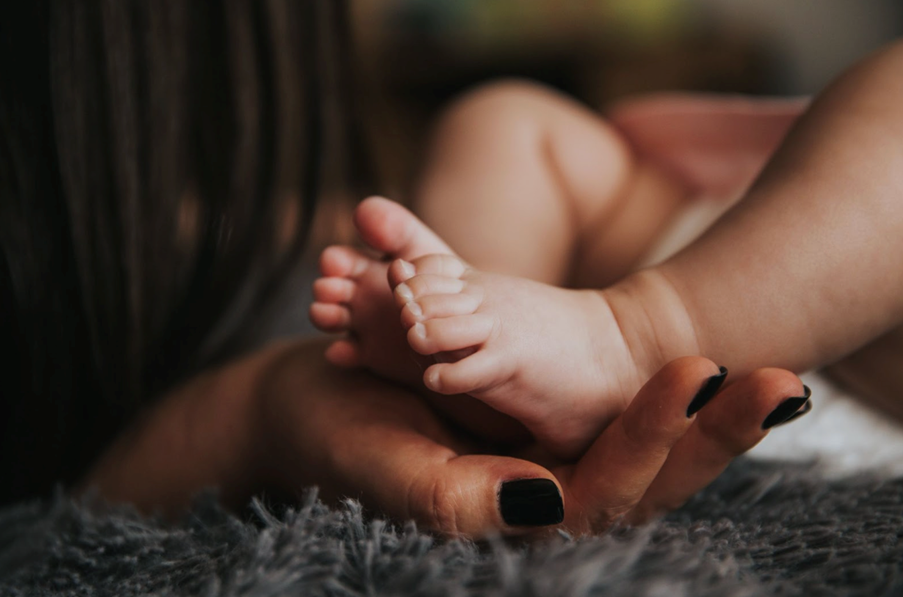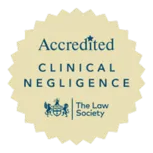What Were the Effects of the Injury?
Ongoing Physical Challenges
Erb's Palsy has brought about a series of ongoing physical challenges for Rosie. One of the most prominent and lasting issues is the persistent discomfort she experiences in her left shoulder. This constant discomfort serves as a daily reminder of the challenging circumstances surrounding her birth, making her everyday activities more difficult.
The most apparent impact of Erb's Palsy is the noticeable weakness in Rosie's left arm. This weakness significantly hampers her ability to perform basic tasks that many people take for granted, such as lifting, carrying objects, and reaching for items. These simple activities become quite demanding for Rosie, often requiring assistance to complete.
Moreover, there is a difference in the length of her left arm, which is 2.5 centimetres shorter than her right one. This discrepancy affects not only her physical appearance but also her posture and the way she stands and moves. To accommodate this difference, Rosie has had to adapt her posture and movements, which adds to her physical discomfort.
To manage her condition and reduce ongoing discomfort, Rosie engages in a routine of exercises and receives regular medical treatments. These exercises and treatments aim to alleviate pain and maintain whatever strength and mobility she can in her affected arm. They are a fundamental part of her daily life, a constant effort to cope with the challenges her condition presents.
These physical challenges are an enduring part of Rosie's life, necessitating her strength and adaptability to face them on a daily basis.
The ongoing physical challenges underline the significance of Rosie's legal action, which we will continue to explore in the next part of this article. Her pursuit of justice seeks accountability for the past but also to get the care she needs for a better quality of life.
Emotional and Psychological Challenges
Erb's Palsy has also taken a toll on Rosie's emotional well-being. She often feels self-conscious about her left shoulder, which protrudes more than her right one. This makes her feel insecure, especially in social situations.
The limited use of her left arm is another ongoing concern. It makes it harder for her to interact with others and participate in everyday activities. Dealing with these challenges can be frustrating and sometimes leaves her feeling isolated.
Additionally, a noticeable scar from a shoulder operation serves as a reminder of the difficulties she faced during her birth. This scar adds to her self-consciousness and emotional burdens.
Future Outlook
The impact of Erb's Palsy extends to Rosie's future prospects. Finding employment may be more challenging for her due to her condition. Some jobs and responsibilities may not be accessible because of her physical limitations, influencing her career choices and financial independence.
Moreover, her daily life and leisure activities are also affected by her condition. Simple tasks that most people take for granted require more effort and planning for Rosie. Participating in hobbies or sports may require adjustments to accommodate her physical limitations.

Taking Legal Action
In the wake of her daughter's life-altering birth injury, Rosie's mother, Tracey, decided to pursue legal action against Portsmouth Hospitals NHS Trust. She acted as Rosie's Litigation Friend, a legal role that allows a parent or guardian to make decisions on behalf of a minor in legal proceedings.
Initially, Tracey sought legal assistance through Legal Aid to initiate the claim, recognising the need to address the medical negligence that resulted in Rosie's condition. However, this path faced a significant obstacle when the NHS Trust declined to accept responsibility for the harm caused to Rosie. As a result, the funding through Legal Aid was withdrawn, leaving Rosie's pursuit of justice in a precarious position.
Our medical negligence solicitors, equipped with a commitment to justice, then agreed to represent Rosie on a No Win, No Fee basis.
Our approach to the case involved highlighting a series of significant errors in the medical care provided to Tracey during her pregnancy and Rosie's birth, which ultimately led to Rosie's injury. Among these crucial errors were:
- Failure to Inform Tracey of the Shoulder Dystocia Risk: The medical records indicated a warning about the risk of shoulder dystocia, yet no healthcare professional informed Tracey about this risk during her pregnancy.
- Lack of Discussion on Risk Mitigation: There were no meaningful discussions regarding alternative measures to reduce the likelihood of injury during the birth process. The absence of such conversations deprived Tracey of the opportunity to make informed choices.
- Absence of Consultation on Alternative Birth Options: Tracey was not consulted about alternative birthing options, such as having an elective caesarean section, which might have prevented the injury.
- Excessive Force During Delivery: A further critical lapse involved the excessive pulling and stretching of Rosie's head in a bid to release her shoulder during the delivery process. This aggressive manoeuvring resulted in the nerve damage responsible for Rosie's Erb's Palsy.
The recognition of these significant oversights in medical care underscored the importance of seeking justice in this case.
What Should Have Happened?
Tracey should have been advised of the risk, the potential implications of shoulder dystocia if it happened, and presented with different delivery options.
Had this happened, she could have carefully weighed up the risks and options, and chosen to have an elective caesarean section, thereby avoiding the injury entirely.
Instead, when the emergency occurred, the midwives excessively pulled and stretched Rosie’s head to try and release the arm, which damaged the nerves in Rosie’s upper arm.
Expert evidence
Our birth injury solicitors also arranged several independent medical assessments from specialists including a midwife, obstetrician, consultant orthopaedic surgeon, educational psychologist, physiotherapist and occupational therapist.
These experts could give their professional opinion on the care that was given during the pregnancy and birth, and how the Erb’s Palsy injury had affected Rosie. This would help us identify what specialist care, support and rehabilitation she would need.
Portsmouth Hospitals NHS Trust continued to deny responsibility, so the case was listed for Trial.
The Outcome For Rosie
Thankfully, we managed to agree a settlement with the NHS Trust at a Joint Settlement meeting, which meant the case didn’t have to go to Court.
Rosie was awarded £450,000 in compensation, so she can now access the physiotherapy and psychological therapy she needs, as well as further specialist care such as pain management in later life.
The settlement also allows Rosie to buy, maintain and replace specialist items she’ll need to minimise the effects of her disability.
This should make a huge difference to her quality of life, particularly as her neck, back and shoulder problems are likely to get worse over time.
Rosie has now secured a job as a nursery nurse, and although her disability means there are limits in what she can do at work, her employer is very understanding.
Tracey said, "We have had a really good experience with Simpson Millar. [They] helped guide us through our whole claim smoothly and [were] very informative always. We also had a good outcome on our claim for our daughter. Thank you so much."
We wish Rosie and her family well for the future.












